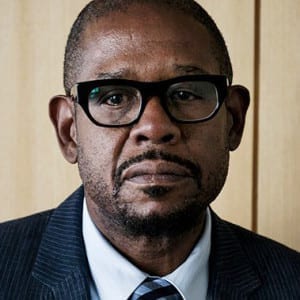As the international community comes together to commemorate World Refugee Day, we face the somber reality that the number of refugees around the world continues to grow to unacceptable levels.
Today over 60 million people—about 1 per every 122 people on the planet—are currently displaced due to violence or conflict. To put that in perspective, that’s more than the entire population of Italy, the twenty-third most-populous nation on Earth.
Perhaps most disturbing of all, more than half the world’s refugees are under the age of 18—boys and girls who have been uprooted from their houses and schools by violence. In a world of plenty, it is unconscionable that so many children across our planet do not have a safe place to call home, yet that is the daily reality for tens of millions.
When such a staggering number of people, especially young people, are unable to live in safe communities, free of conflict, the consequences for all of us are profound. Conflict, no matter where it exists, is always the result of some fundamental human need—for food, for water, for education, or for political efficacy—going unmet. We must take it upon ourselves to help fill these vast needs for the 60 million displaced people in our world, or else we will perpetuate the same destructive conflicts into the next generations.
Not only do we have a strong moral duty to help our fellow human beings when we witness suffering around the world, but, in 2016, we can no longer afford to pretend that conflicts and violence in some far-off part of the world do not affect all of us. As we’ve seen all too tragically in recent months, conflict that might appear localized in a single region can breed hate and extremism that knows no international borders. Unrest anywhere is a threat to peace everywhere.
The best way to end conflicts, to fight extremism, and to eliminate hatred in our world is to work together to ensure that the most vulnerable among us are having their needs met. First and foremost, this means that the international community must open our doors and our hearts and make sure that those displaced by violence have a safe place to live, clean water to drink, and enough food to eat. I am grateful to the many selfless individuals and organizations that work tirelessly around the world to provide these services for refugees.
But we must also recognize that displaced people have needs beyond just shelter and physical nourishment. Two years ago, when I first visited the UN protection-of-civilian (POC) sites in South Sudan that had been established to house the 2 million South Sudanese citizens who had been displaced (and many of whom still are displaced) by civil war, I saw that there were not enough resources to provide people with emotional support for the trauma they had suffered. Feelings of hate and revenge were taking hold, and many youth were acting out on these negative emotions.
WPDI is working with displaced people in South Sudan to give them the tools and support they need to start the reconciliation process and move away from this terrible conflict productively. In one of the POC sites in the capital of Juba, we have developed an initiative called Peace Through Sports, which brings youth from many different backgrounds and ethnicities together on the soccer field and basketball court. We combine daily sports activities with lessons in tolerance and peacebuilding as well as with programs that provide psychosocial support for these young women and men.
The goal is to work with young people in the midst of this crisis to start laying the foundation for future peace. In the words of one of the Peace Through Sports participants, “I know that, by the time we leave the POC camps, we will have become a different people who are able to work together to build peace.”
At a time when refugees continue to grow in number and face increasing discrimination in may parts of the world, we must look to the angels of our better nature and find the will to reach out a hand for our most vulnerable brothers and sisters. We should have the wisdom to see that alleviating suffering today will make the world better for all of us tomorrow. And we must engage with displaced youth and seize on this opportunity to develop their capacities as global citizens. In doing so, we will be preventing future conflicts before they can start.




































